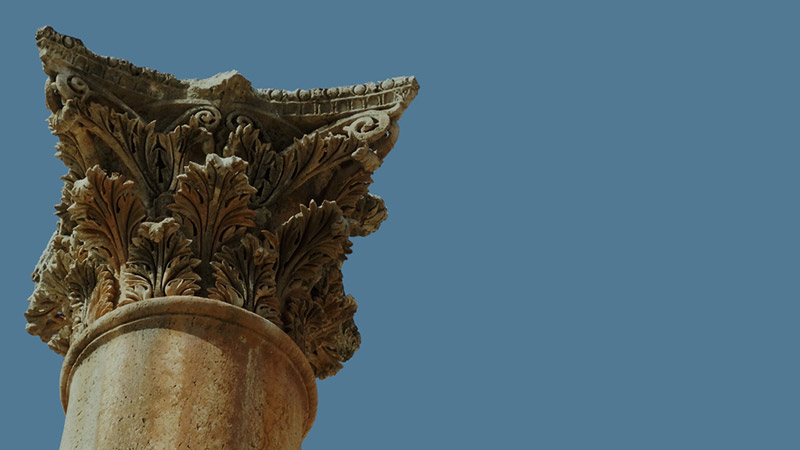More Results
Showing 12 of 201
Articles

No Greater Love
Korazin - The CityStudying the ruins of Korazin and other Galilean towns, scholars have pieced together a picture of family life in the first century. Korazin stood in the northwestern corner of the Galilee region, about three miles from the sea. ...
MOREEncyclopedia

Nazerites
Early in the history of Israel, God established the Nazarites as a unique category of people. They were totally devoted to his service (Num. 6).Nazarites took a vow of total separation from the community for a short time (or occasionally, for life...
MORE
Net Weight
Net WeightIn Jesus' day, fishing nets were made of fibers, sometimes linen.They had wood floats along one edge and sinkers attached to the rope at the bottom. These net sinkers were often made of small stones of basalt, flint, or limestone. A smal...
MORE
Olive Crusher
This olive installation is located at the modern-day city of Maresha in southern Judea. Its appearance and location in a cave are typical of ancient presses. Oil installations were commonly placed in caves because the more moderate temperatures im...
MORE
Olive Grove
Olive trees rarely reach 20 feet high. This ancient tree, with is gnarled trunk, is still very productive after 100 or more years of bearing olives. The root system of olive trees spreads wide to obtain the necessary moisture in Israel's relativel...
MORE
Olive Oil
Olive oil was highly valued by the people of first-century Israel. They used it in food preparation and preservation, in medicine, and in cosmetics. Olive oil was also used to lubricate wheels and hinges. Its most important use, however, was proba...
MORE
Olive Oil (Olive Farming)
Olive oil was a significant part of the daily lives of the Israelites in the first century. It was eaten in or with other food, used for skin care, used to fuel lamps, taken as medicine, and widely used in trade. It may also have been used as a lu...
MORE
Olive Oil Processing
The cultivation and harvesting of olives was essential to Galilee's first-century economy. A community olive processing installation included an olive crusher, which cracked the olives in order to produce an initial flow of oil, and an olive press...
MORE
Olive Tree Imagery
The olive tree is one of the plants most frequently mentioned in the Bible. Scripture writers used olive tree imagery to describe Jesus' Jewish roots and the relationship of Jews and Gentiles.When an olive tree gets very old (often hundreds of yea...
MORE
Olive Trees
The olive tree is known for its beauty (Hosea 14:6) partially because its large ancient trunk often has the look of a productive past. Furthermore, one side of the tree's leaves are light green and the other, a much lighter green, give the leaves ...
MORE
Olives
This bowl contains both ripe and unripe olives. The green olives, pickled or salted, are an important part of the daily diet. The black ones may be salted or pickled for eating; or more likely, they may be crushed and pressed for oil.
MOREGlossary

Neokoros Definition
Title borne by a city which possessed a temple dedicated to the imperial cult.
MORE

















